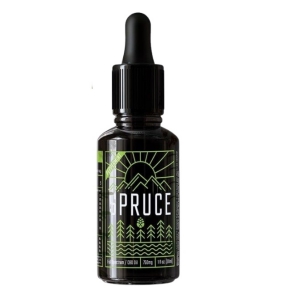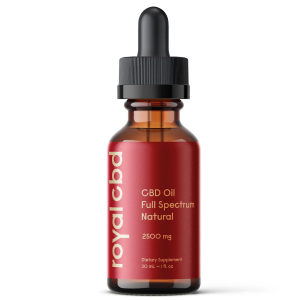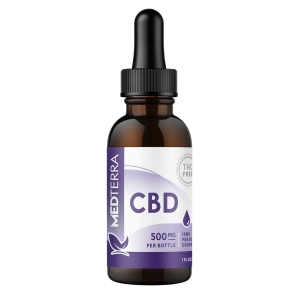 Expert's opinion
Expert's opinion
The article is a subjective view on this topic written by writers specializing in medical writing.
It may reflect on a personal journey surrounding struggles with an illness or medical condition, involve product comparisons, diet considerations, or other health-related opinions.
Although the view is entirely that of the writer, it is based on academic experiences and scientific research they have conducted; it is fact-checked by a team of degreed medical experts, and validated by sources attached to the article.
The numbers in parenthesis (1,2,3) will take you to clickable links to related scientific papers.
Best CBD Oil For Leukemia 2024: Does Cannabis Work? Benefits & Risks
All articles are produced independently. When you click our links for purchasing products, we earn an affiliate commission. Learn more about how we earn revenue by reading our advertise disclaimer.

Spruce CBD
15% Off Coupon: HEALTHCANAL

Royal CBD
20% Off Coupon: HC20

Medterra
15% Off Coupon: HEALTHCANAL
Cannabidiol, also known as CBD oil, is on everyone’s radar these days.
As more and more studies are completed, evidence supports the use of CBD oil for leukemia and many other diseases.
Leukemia is an umbrella term to describe many different cancers of the blood and involves the production of immature white blood cells that cannot work the way they need to.
Some common forms of leukemia include:
- Chronic myelogenous leukemia (CML)
- Hairy cell leukemia
- Chronic lymphocytic leukemia (CLL)
- Acute myelogenous leukemia (AML)
- Acute lymphoblastic leukemia (ALL)
Typically chronic myelogenous leukemia is more common in adults[1], rarely affecting children.
In contrast, acute lymphoblastic leukemia often occurs in children.
So, how can CBD oil help those with leukemia fight cancer?
This article will discuss how CBD oil may help reduce cancer symptoms in leukemia patients, the risks and side effects, and how to use CBD oil properly.
Top 3 Best CBD Oil For Leukemia On The Market In (May. 2024)
- Spruce CBD – Editor’s Choice
- Royal CBD – Best Quality
- Medterra – Best Pure CBD Isolate
CBD Oil For Leukemia: Does It Help?
There are many treatment methods for leukemia, including stem cell transplant, radiation therapy, and chemotherapy.
A stem cell transplant also referred to as a bone marrow transplant typically involves killing your unhealthy bone marrow and its stem cells. Once this occurs, healthy cells are infused by a donor, resulting in your bone marrow making normal, healthy blood cells.
Chemotherapy helps kill leukemia cells by releasing drugs into the bloodstream.
In contrast, radiation therapy uses energy beams to kill abnormal cancer cells or stop growth in leukemia patients.
While these options may be effective treatments for leukemia patients, some believe CBD might have anticancer effects.
As more people search for natural remedies for many diseases, there has been ongoing research about the benefits of CBD for cancer. Can CBD help those with leukemia as well?
How CBD Can Help With Leukemia?
Cannabidiol (CBD) and THC are two popular types of cannabinoids found in medical cannabis plants.
Unlike CBD, THC produces a euphoric effect and is illegal in many areas.
Research has been limited on the benefits of cannabinoids for quite some time now due to laws and regulations.
As laws have become less stringent, more research has been completed and has shown promising results in the treatment of many health conditions, including leukemia.
Before we start, it is essential to know that clinical trials are lacking.
The only FDA-approved cannabis-derived treatment for a disease is Epidiolex for epilepsy.
Additionally, the only FDA-approved cannabis-related medications are dronabinol and nabilone[2].
These two drugs are approved to treat nausea and vomiting in cancer patients who have failed treatment with traditional medications.
However, many studies show the potential benefits of taking CBD oil to ease symptoms associated with leukemia.
What Does The Research Say?
Cannabinoids work inside of our body by binding to cannabinoid receptors[3] in our body located in the brain and immune cells throughout our body.
One older study[4] found that CBD may be beneficial for leukemia treatment by reducing the rate at which cancer cells spread. CBD may also be able to destroy leukemia cells through cannabidiol-induced apoptosis[5] or cell death.
According to a study[6] from 2016, researchers found that chronic lymphocytic leukemia cells contain large amounts of cannabinoid receptors. Unfortunately, this study was unable to conclude that using cannabinoids alone has anti-cancer properties in leukemia cells.
However, a later study[7] from 2017 showed promising results for potential leukemia treatment. The same study[8] found that cannabinoid use may promote healthy cell development, reduce activity in leukemia cells, and healthy production of white blood cells, red blood cells, and platelets.
Interestingly, when cannabinoid intake followed anti-cancer drugs like chemo, it appears results intensified] compared to chemo treatment alone.
Although the National Cancer Institute does not fully endorse CBD oil at this time, they have admitted that CBD may be an effective treatment to alleviate symptoms associated with leukemia.
Risk & Side Effects
The Food and Drug Administration (FDA) has not approved a medication containing an active ingredient derived from cannabis to treat leukemia.
While CBD may be promising as a natural approach to treat leukemia, using CBD is not risk-free.
CBD oil is very safe for the most part, and most individuals tolerate it well. Nevertheless, there have been minor symptoms reported with the use of CBD. According to one review, the most common adverse side effects linked to CBD use are:
- Fatigue
- Weight changes
- Changes in appetite
- Diarrhea
According to the World Health Organization, CBD oil is generally safe for most people with little to no side effects.
Similar to grapefruit, CBD interacts with enzymes that belong to the cytochrome p450 family and may result in altered effectiveness and inaccurate dosing of specific medications
If any questions arise about the potential side effects or medication interactions, it is always best to consult with a health provider before starting or stopping any medication.
Leukemia Symptoms
Leukemia is the name for certain types of blood cancer. It usually starts in the bone marrow, where blood-forming and the abnormal production of white blood cells begin.
When you have leukemia[9], your body makes a significant amount of abnormal white blood cells.
The abnormal white blood cells make it difficult for the body to fight infection effectively the way typical white blood cells would.
The disease itself results in many symptoms caused by a decreased amount of normal blood cells.
Though there are various types of leukemia, Acute Myeloid Leukemia, or AML, is the most common[10].
Symptoms may vary depending on the type of leukemia. Here are some symptoms associated with different types of leukemia:
- Fatigue
- Weakness
- Fever
- Bruises
- Frequent bleeding
- Pale Skin
- Weight loss
- Frequent infections
In addition, the treatment for leukemia also produces a plethora of symptoms. Treatment often includes chemo, radiation, stem cell transplant, and other medications. For acute leukemia, chemotherapy is usually the standard treatment.
Here are some symptoms[11] associated with the treatment of leukemia:
- Nausea
- Hair loss
- Fatigue
- Diarrhea
- Mouth sores
- Swelling
- Infection
- Loss of appetite
- Severe pain
How To Use CBD Oil For Leukemia?
Standard CBD oil use typically consists of a sublingual application under the tongue. Use a dropper to place the recommended amount under your tongue and wait for 30-60 seconds before swallowing to promote better absorption.
Full-Spectrum CBD Oil
Full Spectrum CBD oil contains all of the compounds that occur naturally within the cannabis plant this includes traces of THC, which contributes to the “high” often experienced by cannabis use.
Some people prefer to take full-spectrum CBD oil because it is usually the most desired because of the enhanced benefits it may provide. Full-spectrum CBD oil includes all naturally occurring compounds of the plant. All of the natural compounds working together are known as the entourage effect.
We know that one of the most common side effects related to cancer treatment is loss of appetite. Not eating enough can deprive your body of essential nutrients resulting in malnutrition, leading to even more negative side effects.
Full Spectrum CBD extract is typically high in antioxidants, amino acids, flavonoids, terpenes, and essential fatty acids, improving nutritional status.
CBD Broad-Spectrum CBD Oil
Broad-Spectrum CBD oil has similar ingredients to full-spectrum CBD oil but no THC.
CBD Isolate
CBD Isolate is just that, CBD in its simplest form with no additional compounds added.
Vaping
Vaping CBD oil may result in quicker symptom relief by leading to vaporization into the lungs. There has been conflicting information lately on the potential risks associated with vaping. Scientists should do more research to prove safety. In addition, not all CBD oil is made for vaping, so be sure to read your product information very well.
Using A CBD Inhaler
A CBD inhaler is very similar to an asthma inhaler and uses a pump to release doses of CBD into the lungs for relief.
Dosage
There are not many clinical studies as of now on proper dosages of CBD oil for cancer treatments.
If you try to find a dosage for leukemia treatment online, you will probably find a wide range of recommendations, and it may be challenging to know where to start.
Unfortunately, there are no specific dosage guidelines at this time. According to studies[12], CBD oil is safe in doses up to 1,200 mg.
It is best to start with a low dose and gradually increase until you find symptom relief.
If you search online, you will likely see a wide range of dosages that help people with symptom relief from asthma.
Conclusion
In closing, CBD oil appears to have a promising future for use to treat a wide range of health conditions and their symptoms, including leukemia.
As more medications derived from cannabis and CBD become approved, we will likely see additional studies with research to back claims for leukemia patients and CBD use.
Before using CBD, it is crucial, especially for cancer patients, to discuss treatment options with their healthcare provider.
Frequently Asked Questions
CBD oil is only legal if it comes from hemp plants and contains less than 03% THC. On a state level, CBD may still be illegal. If any confusion arises, it’s best to check your local laws.
As a reminder, even traces of THC may be detected on drug tests regardless of legality. If you have an upcoming drug test, it may be best to avoid CBD altogether for a little while.
While many patients qualify and are allowed to use medical marijuana, there are several factors you should consider before deciding on a treatment. If you do not want the psychoactive effects of THC intake, CBD may be a better option.
No. There are not enough studies at this time to support CBD use in place of any medication for any health condition other than epilepsy. However, as mentioned above, studies [13] may suggest that the combination of CBD and chemotherapy improves effectiveness.
+ 13 sources
Health Canal avoids using tertiary references. We have strict sourcing guidelines and rely on peer-reviewed studies, academic researches from medical associations and institutions. To ensure the accuracy of articles in Health Canal, you can read more about the editorial process here
- SEER. (2018). Chronic Myeloid Leukemia – Cancer Stat Facts. [online] Available at: https://seer.cancer.gov/statfacts/html/cmyl.html.
- National Cancer Institute. (2021). Cannabis and Cannabinoids (PDQ®)–Patient Version. [online] Available at: https://www.cancer.gov/about-cancer/treatment/cam/patient/cannabis-pdq#_AboutIACT_6.
- EPIDIOLEX.com. (2021). EPIDIOLEX® (cannabidiol). [online] Available at: https://www.epidiolex.com
- Zou, S. and Kumar, U. (2018). Cannabinoid Receptors and the Endocannabinoid System: Signaling and Function in the Central Nervous System. International Journal of Molecular Sciences, [online] 19(3), p.833. Available at: https://www.ncbi.nlm.nih.gov/pmc/articles/PMC5877694/.
- McKallip, R.J., Jia, W., Schlomer, J., Warren, J.W., Nagarkatti, P.S. and Nagarkatti, M. (2006). Cannabidiol-Induced Apoptosis in Human Leukemia Cells: A Novel Role of Cannabidiol in the Regulation of p22phox and Nox4 Expression. Molecular Pharmacology, [online] 70(3), pp.897–908. Available at: https://molpharm.aspetjournals.org/content/70/3/897.long.
- Freund, P., Porpaczy, E.A., Le, T., Gruber, M., Pausz, C., Staber, P., Jäger, U. and Vanura, K. (2016). Cannabinoid Receptors Are Overexpressed in CLL but of Limited Potential for Therapeutic Exploitation. PLOS ONE, [online] 11(6), p.e0156693. Available at: https://journals.plos.org/plosone/article?id=10.1371/journal.pone.0156693#sec019.
- Scott, K.A., Dalgleish, A.G. and Liu, W.M. (2017). Anticancer effects of phytocannabinoids used with chemotherapy in leukaemia cells can be improved by altering the sequence of their administration. International Journal of Oncology, [online] 51(1), pp.369–377. Available at: https://pubmed.ncbi.nlm.nih.gov/28560402/.
- Iffland, K. and Grotenhermen, F. (2017). An Update on Safety and Side Effects of Cannabidiol: A Review of Clinical Data and Relevant Animal Studies. Cannabis and Cannabinoid Research, [online] 2(1), pp.139–154. Available at: https://www.ncbi.nlm.nih.gov/pmc/articles/PMC5569602/.
- Medlineplus.gov. (2021). Leukemia. [online] Available at: https://medlineplus.gov/leukemia.html.
- National Cancer Institute. (2020). Adult Acute Myeloid Leukemia Treatment (PDQ®)–Patient Version. [online] Available at: https://www.cancer.gov/types/leukemia/patient/adult-aml-treatment-pdq#_1.
- National Cancer Institute. (2021). Side Effects of Cancer Treatment. [online] Available at: https://www.cancer.gov/about-cancer/treatment/side-effects.
- Russo, E.B. (2011). Taming THC: potential cannabis synergy and phytocannabinoid-terpenoid entourage effects. British Journal of Pharmacology, [online] 163(7), pp.1344–1364. Available at: https://bpspubs.onlinelibrary.wiley.com/doi/epdf/10.1111/j.1476-5381.2011.01238.x
- Scott, K.A., Dalgleish, A.G. and Liu, W.M. (2017). Anticancer effects of phytocannabinoids used with chemotherapy in leukaemia cells can be improved by altering the sequence of their administration. International Journal of Oncology, [online] 51(1), pp.369–377. Available at: https://pubmed.ncbi.nlm.nih.gov/28560402/.



